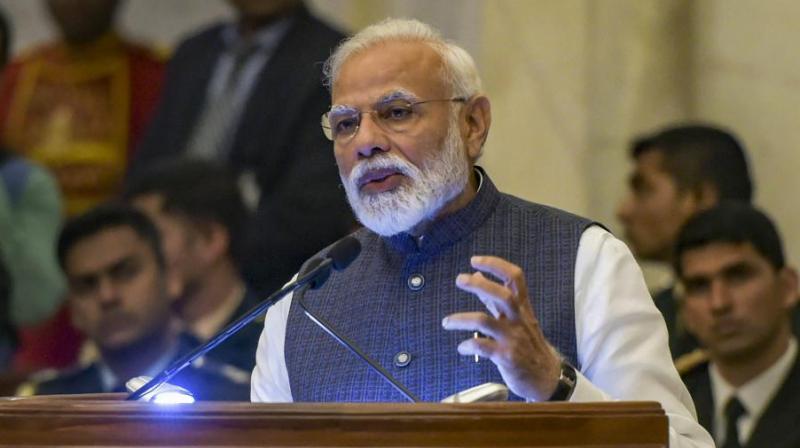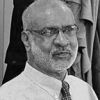Why didn’t Modi, as PM, release Henderson Brooks Report on ’62?

While campaigning against Jawaharlal Nehru in 2014, Narendra Modi used to demand that the Manmohan Singh government should release the Henderson Brooks Report on the 1962 war. The report is just not about the failures on the battlefield, but also about how politicians and bureaucrats run the ministry of defence. Mr Modi has had five long years as Prime Minister. But the HBR is still not public. With good reason too. As nothing has changed in the MoD in the five Modi years. His too is a record of shame.
The MoD continues as before. A tangled web of inability to understand security issues, prevarication, bureaucratic intrigue, political indecision, all-pervasive corruption. The consequences of all these are still seen. MiG-21s are still at the front line of our air defence. Advanced fighters lacking vital munitions. Ageing submarines and an ill-equipped army. These are well known and recorded. Aiming at policy without the means is now a deep-rooted tradition. If A.K. Antony was a master of indecision, we now have a political and intellectual lightweight in charge at the interface of technology, war and peace. Policies are thus made to satiate the galleries and narrow political gains. A complicit media then compounds problems by not publishing the whole truth and asking pertinent questions.
I must confess that I have read Part I of the Henderson Brooks Report (HBR) many years ago. I also read a copy of an executive summary of the HBR, which is made available to certain senior military officers. Don’t ask how and don’t wonder why! Some of us get to see things that we are not meant to see. There is nothing in either of them that most of us who comment on security issues didn’t know. The HBR is a severe indictment of how our government goes about handling critical issues involving national security. It was meant for the government to derive lessons to enable it to improve its security-related decision-making processes. As the HBR was seen more as an indictment of a particular government, it was turned into a badly-kept national secret. The HBR was actually as much an indictment of how the Indian military, and in particular the Indian Army, conducted itself in 1962. Since the military at some levels does get to study the main points made in HBR, it is possible that at least the military has derived some lessons from it.
But the military, despite accounting for almost a fifth of the national budget, is only an attached department of the government, and not a part of it. Which means its status is no different from a state-owned Road Transport Corporation in the government. Even Indian Railways is a part of the government, and we all know that all governments love civil aviation because of all the attendant implications of controlling the national carrier, airports, and regulating who flies in and out with how many seats. So the institution that accounts for a fifth of the national budget, and about 1.8 per cent of GDP, has no say in the government, which means that it has no role to play in policy and decision-making. It will only do as it is told, and make do with what it is given. We now still end up making policy goals without the military means.
Thus, if a submarine has to put to sea with its batteries at the fag end of their life cycle, it just has to do so. If our artillery is deployed with only half its normal ammunition, so be it. If our Air Force has to fly with its hard points empty, so be it. That this is so is also well known. In 1962, we did not know it. The HBR pointed out all this, among other shortcomings. Since nothing had actually changed since Jawaharlal Nehru was hustled into dubious battle with China by an unthinking and constantly baying Opposition and media, and an explosive mix of ignorance and naiveté, none of the non-Congress governments which have “enjoyed” power from time to time in New Delhi have really bothered about making public the contents of the relevant HBR. I had spoken to several Prime Ministers — V.P. Singh, Chandra Shekhar and Atal Behari Vajpayee — to make the report public, but they knew better. One just said that when you point one finger outwards, you point three at yourself. And that about sums up the situation even now.
On June 18, 1940, at Britain’s bleakest moment as it braced for a German invasion, Winston Churchill addressed the House of Commons. In his speech, he reiterated Britain’s resolve to meet the German threat come what may. In the course of this speech, he said: “We shall go on to the end. We shall fight in France, we shall fight on the seas and oceans, we shall fight with growing confidence and growing strength in the air, we shall defend our island, whatever the cost may be. We shall fight on the beaches, we shall fight on the landing grounds, we shall fight in the fields and in the streets, we shall fight in the hills; we shall never surrender.” It is said that as the Commons thundered, applauding his stirring rhetoric, Churchill muttered in a whispered aside to a colleague: “And we’ll fight them with the butt ends of broken beer bottles because that’s bloody well all we’ve got!”
A country fights with what it’s got. It’s the responsibility of the government to be aware of the risks a country is constantly subjected to. Commanders are apt to exaggerate threats and prepare for all contingencies and the worst-case scenarios. That’s their nature. But policymakers must temper military expectations with reason and probability. To be overprepared also invites risks. There’s a fine balance between showing readiness and being threatening. That cut must be made by policymakers elected to do just that job. But they still don’t know their job.
But our problem is that those who are most competent and qualified to influence and make military policy are not a part of the government. And those tasked with this responsibility in the government still don’t know very much. So if there is another debacle on the lines of 1962, we may not need a new HBR. We may as well dust the old one and read it. Or be ready to sing “Aaye mere watan ke logon!”

